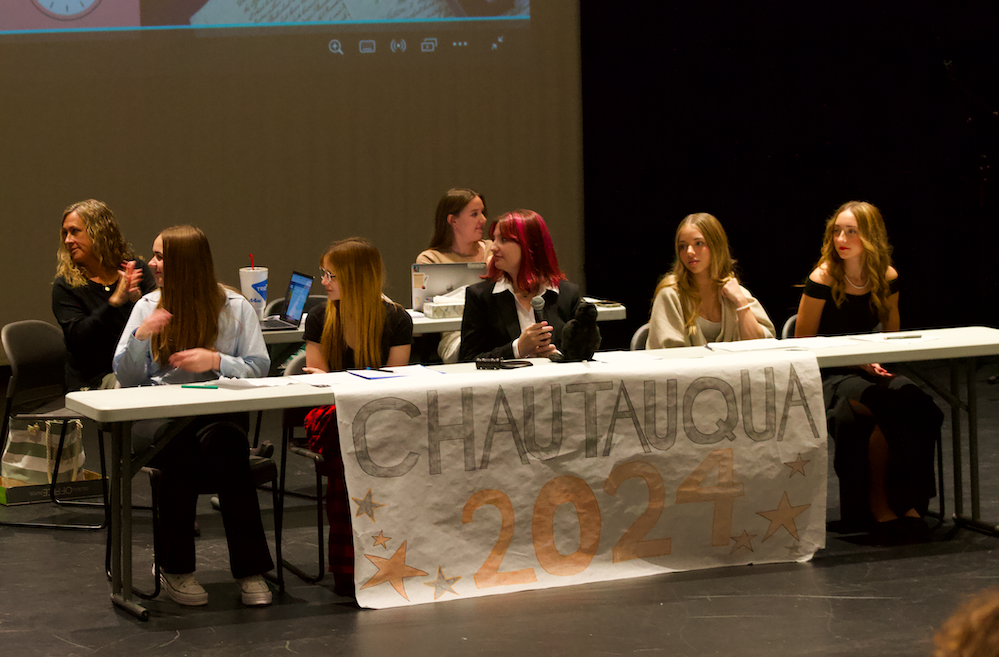Chautauqua is an event held by honors american studies teachers and students simulating a conference between prominent historical and pop culture figures discussing present world issues from the healthcare crisis to civil rights or even global warming.
Students portray these figures by dressing like them and representing their beliefs in a series of debates and lines of questioning while pitching and discussing plans to fix the world’s issues. However, the event tows a thin line when it comes to students portraying a race or sex different from their own, and teachers have to go out of their way to ensure representation doesn’t slip into impersonation, mocking, and appropriation.
The research students do to portray their characters and speak on how they feel they can solve various world problems provides a unique and positive learning experience, giving students a better understanding of the world around them, and from a perspective they may not have taken into account before.
“I think it’s a chance for them to look at another person’s perspective and learn about them,” honors american studies teacher Brittany Probst says, “and really get some quality research skills and then apply what they’re doing… to look at bigger social issues and political issues that are happening in our country today.”
Chautauqua is set up as a formal event and students are expected to be very professional even if they are portraying a figure who is controversial or infamous in some way. Students are provided a list of figures that are deemed appropriate, and given the opportunity to choose a character from off the list provided that they can explain why their character would be appropriate.
“Many students know what is expected of them and that is stated through everything we do throughout the year and what other teachers do,” Honors American Studies teacher Cody Freund says, “they are given a list of characters to choose from and they can choose someone from off the list but it has to get approved with reasons why they would be appropriate for Chautauqua and why they would be able to talk about issues and policies. It’s pretty laid out for them what’s expected.”
While a great learning opportunity, there’s always the potential students will take it too far, especially when the assignment allows for students to represent figures outside their own race or gender. It is very explicitly stated though that students are not meant to impersonate any historical figure, but represent them in their own voice, and dress appropriately to avoid any kind of appropriation or mocking that could take away from the experience or make other students uncomfortable.
“From the start,” Freund says, “we emphasize that it’s a professional conference and you go there trying to represent your character but you’re taking their ideas and what they think, and it’s more how they handle an issue than trying to act like them.”
Chautauqua allows for students to see very present issues within the world today from the perspective of people they may have not previously considered and teachers go through lots of effort to maintain its educational value and keep it professional.




